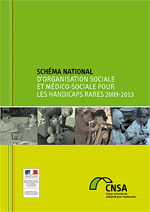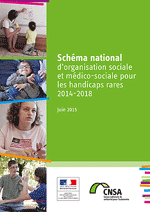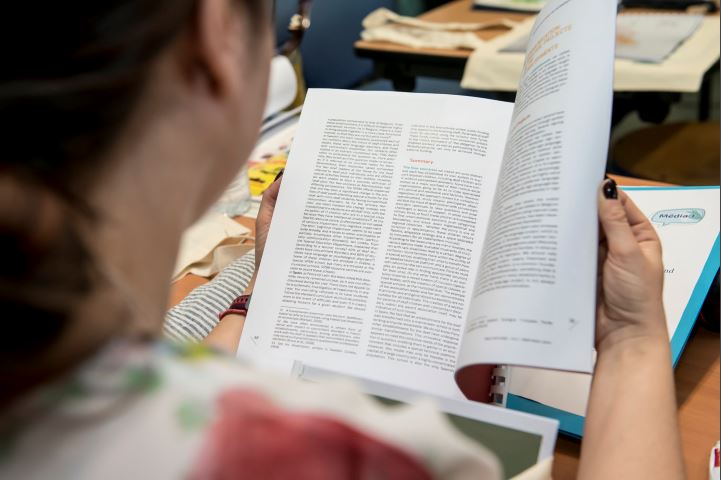The Schémas nationaux handicaps rares : National plans for rare disability
Cases of rare disability, involving complex and specific needs, require particularly specialised and personalised interventions for each care recipient and for each care recipient’s life ambitions.
Aware that the regional and départment-led social and medico-social policies alone do not allow a full response to the complexity of the challenges raised by these cases (rarity of the demographic, rareness of the combinations of impairments and rareness of the technical support arrangements and areas of expertise required), the authorities, responding to the outcry of people with rare disabilities, their families, and professionals, decided to put forward a dedicated national interventions framework via a national social and medico-social organisational plan for rare disabilities.
1st National social and medico-social organisational plan for rare disabilities, 2009-2013
*1er Schéma national d’organisation sociale et médico-sociale pour les handicaps rares 2009-2013

Adopted for the 2009-2013 period, the first Schéma national enabled the determination of priorities and conditions relating to the development, over the 5 years, of the social and medico-social services offered. In addition, it shed light on targeted means of encouraging the development of research and training projects involving a national and international mobilisation of various stakeholders.
2nd National social and medico-social organisational plan for rare disabilities, 2014-2018*
*2e Schéma national d’organisation sociale et médico-sociale pour les handicaps rares 2014-2018

Leaning on the advance in knowledge and actions initiated by the first plan, this second plan aimed to reinforce the ability to recognise cases of rare disability, whether: few in number (rarity of the demographic); highly specific (rareness of the combinations of impairments); or particularly complex and difficult to identify, assess and manage (rareness and complexity of support techniques).
It aimed to respond to a number of big questions, especially those regarding:
- the streamlining of resources and their organisational model, with the view to improving the quality of life and social and civic participation of people of all ages with rare disability
- improving the extent to which the care-recipient’s entourage is taken into account in the sharing of knowledge and the provision of care and support
- the construction of common culture of intervention and assessment practices between the various social, medico-social and healthcare stakeholders, families of care-recipients and care-recipients themselves.
Towards a 3nd National social and medico-social organisational plan for rare disabilities*
*3e Schéma national d’organisation sociale et médico-sociale pour les handicaps rares 2014-2018
Currently under development, the 3rd national plan should allow the inclusion of the Dispositif intégré pour les handicaps rares within the more general programme of transformation brought to bear by the five-year strategy for developing services offered without destabilising the work already carried out to the specific benefit of people with rare disabilities.
